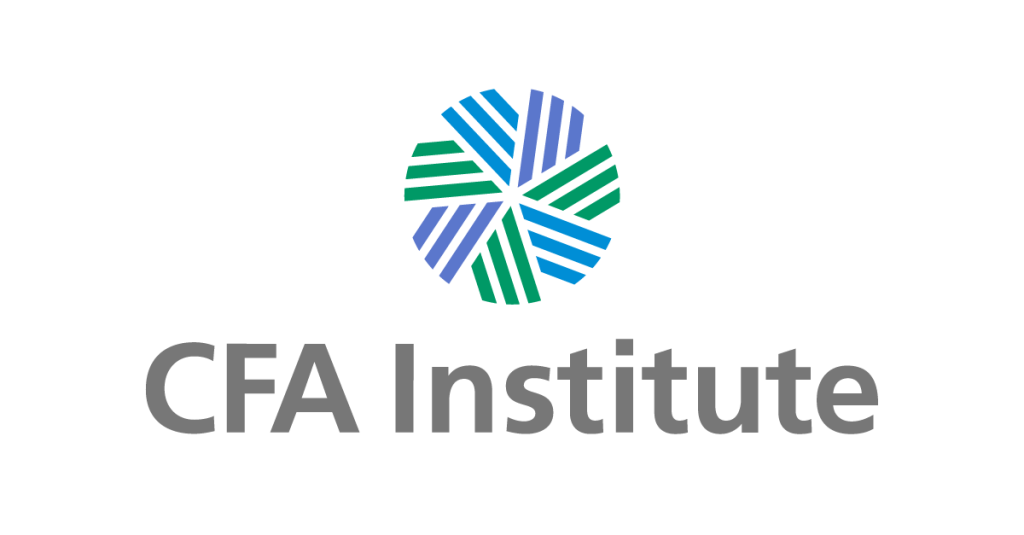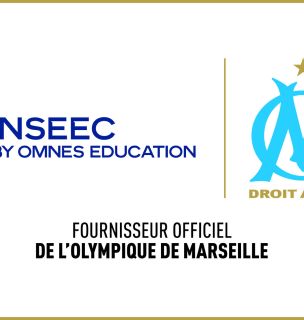Designed for international students preparing for a career in finance
Ellen KOUNTZ
Dean of the Finance Department – Paris Campus
Why choose the Master of Science International Financial Analyst?
The first traces of finance date back 5,000 years and it has been associated with the development of business and the world ever since.
Over the past 30 years, international finance has been strengthened by rapid globalization. Therefore, 21st century businesses will surely always need the advice of qualified financial experts capable of supporting businesses around the world.
The MSc2 International Financial Analyst is designed for international students embarking on a career in finance. Fluency in English is a prerequisite for admission. It is the natural continuation of the Msc1 in International Finance. The program provides students with the theoretical tools necessary to master the practical problems of financial management of business entities around the world. The main pedagogical emphasis is on analysis, with extensive use of open discussion and case studies to link theory to observable examples.
Delivered entirely in English by a team of finance professionals with extensive professional and academic experience, this degree is certified by the highest level of the French National Register of Professional Qualifications (RNCP level 7).
This international finance program welcomes students with a wide range of experiences and backgrounds. They often share similar values and qualities such as high intellectual ability, professional experience, determination and courage to undertake full-time study in a foreign country. Many are culturally aware global citizens with the potential to be the business innovators and thought leaders of the future.
The Bloomberg terminal is used throughout the course and also as a stand-alone class. For incoming students who have not yet earned the BMC Bloomberg Market Concepts, additional financial lab hours are assigned for this additional certification.

A 1 or 2 year degree to become an experienced professional in the international finance market
Holders of a 3-year bachelor degree can apply for the first year of the MSc, and holders of a 4-year bachelor degree can apply directly for the second year of the MSc.
What are the objectives of the program?
The certification “Expert en Analyse Financière” aims to respond to the changing skill needs of the finance sector:
- Control of the regulatory and ethical environment in the context of a strengthening of the constraints imposed on companies – Reinforcement of management skills, data analysis and reporting with a view to optimising the performance of the company
- Enhanced technical and managerial skills in a context where financial analysis professionals occupy a strategic place for the security and sustainability of the company’s activity: management of financial risks, performance optimization, team management, action plan recommendations
- Niche technical skills that are sought after in the labour market: data analytics, quantitative analysis, financial modelling, regulatory reporting, knowledge and mastery of IFRS standards.
- The evolution of these skills stems from the transformation of activities and professions in the finance sector: increase in the regulatory environment, the volume of data to be processed and analysed, digitalisation, technicisation, professionalization of the missions and the competitive environment.
How to apply for the MSc International Financial Analyst at INSEEC?
The required prerequisites
The conditions for accessing the certification system (excluding VAE) are:
- To enter the 1st year of the course (MSc 1): to have validated 180 ECTS (level 6, License or equivalent) in the field of marketing, commerce, management or communication. He must have a professional level of English for the English-speaking program.
- To enter the 2nd year of the course (MSc 2): to have validated 240 ECTS (level 6, Master 1 or equivalent) in the field of marketing. He must have a professional level of English for the English-speaking program.
- Executive training is subject to specific prerequisites with professional experience taken into account.
Want to know more about the MSc International Financial Analyst program?
Sign up for an Open Day!
Would you like to know more about the admission conditions for our program in International Financial Analyst?
Courses
The courses presented below are given as an example, they may vary slightly depending on the teaching campus. The course content is adapted each year to market developments and updated before the start of each new school year.
1st year courses
BASIC COURSES – 1ST YEAR
BUSINESS COMPUTING
INVESTMENT BANKING
MANAGERIAL ACCOUNTING
BUDGET MANAGEMENT
INTERNATIONAL NEGOTIATION
CORE COURSES 1ST YEAR
CFA LEVEL 1 ETHICAL & PROFESSIONAL STANDARDS
Evaluation modality: presentation per group and individual assignment
CFA LEVEL 1 MOCK EXAM
Evaluation modality: presentation per group and individual assignment
CFA LEVEL 1 FINANCIAL REPORTING 1
Evaluation modality: presentation per group and individual assignment
CFA LEVEL 1 FINANCIAL REPORTING 2
Evaluation modality: presentation per group and individual assignment
CFA LEVEL 1 QUANTITATIVE METHODS
Evaluation modality: presentation per group and individual assignment
CFA LEVEL 1 ECONOMICS
Evaluation modality: presentation per group and individual assignment
CFA LEVEL 1 CORPORATE ISSUERS
Evaluation modality: presentation per group and individual assignment
CFA LEVEL 1 EQUITY INVESTMENTS
Evaluation modality: presentation per group and individual assignment
CFA LEVEL 1 FIXED INCOME
Evaluation modality: presentation per group and individual assignment
CFA LEVEL 1 DERIVATIVES
Evaluation modality: presentation per group and individual assignment
CFA LEVEL 1 ALTERNATIVE INVESTMENT
Evaluation modality: presentation per group and individual assignment
CFA LEVEL 1 PORTFOLIO MANAGEMENT
Evaluation modality: presentation per group and individual assignment
CFA ESG CERTIFICATION
Evaluation modality: presentation per group and individual assignment
2nd year courses
2nd YEAR INTERNATIONAL FINANCIAL ANALYST COURSES
STRATEGIC REVIEW
ADVANCED MANAGERIAL ACCOUNTING
- This course explores advanced topics in managerial accounting, focusing on strategic decision-making and performance evaluation. Students learn how to analyze financial information to support effective resource allocation and optimize business performance.
INTERNATIONAL FINANCIAL ANALYSIS
- This course delves into the complexities of analyzing financial statements in a global context. Students gain a deeper understanding of international accounting standards, exchange rate fluctuations, and cultural factors that impact financial reporting and analysis.
CORPORATE FINANCE
- This course provides a comprehensive understanding of financial management in a corporate setting. Topics covered include capital budgeting, capital structure, dividend policy, and risk management. Students learn how to make strategic financial decisions to maximize shareholder value.
RESEARCH REPORT
- The applied research dissertation aims to develop analytical and reflective skills around a managerial issue. It provides an opportunity for students to demonstrate their rigor in analyzing a problem or managerial issue and formulating operational recommendations. The research dissertation reflects the student’s research work and enhances the professionalism of the course.
CONTROL AND MANAGEMENT
BLOCKCHAIN & FINTECH
- This course explores the revolutionary technologies of blockchain and fintech. Students learn about the underlying principles, applications, and potential disruptions brought about by these technologies in the financial industry. Topics covered include smart contracts, decentralized finance, and the impact of digital currencies.
DATA ANALYTICS IN FINANCE
- This course equips students with the tools and techniques to extract meaningful insights from financial data. Students learn data manipulation, visualization, and statistical analysis techniques to support financial decision-making and risk management in an increasingly data-driven world.
RISK MANAGEMENT
- This course focuses on identifying, assessing, and managing financial risks faced by businesses. Students learn various risk measurement techniques, including value-at-risk and stress testing, and explore strategies for mitigating risks through hedging, diversification, and insurance.
EXCEL, VBA
- This course provides hands-on training in utilizing Microsoft Excel and Visual Basic for Applications (VBA) for financial analysis and modeling. Students learn advanced spreadsheet techniques, automation, and programming to enhance their financial modeling and decision-making capabilities.
ADVANCED DERIVATIVES AND ALTERNATIVE INVESTMENTS
- This course delves into complex financial instruments such as derivatives and alternative investments. Students explore topics such as options, futures, swaps, hedge funds, and private equity. They develop a deep understanding of valuation techniques and risk management strategies associated with these instruments.
QUANTITATIVE METHODS
- This course introduces students to quantitative techniques used in financial analysis and decision-making. Topics covered include statistical analysis, time series analysis, regression modeling, and optimization. Students gain the skills necessary to effectively analyze and interpret financial data.
FINANCIAL ACTIVITIES
ECONOMICS
- This course provides a foundational understanding of economic principles and their application in the financial industry. Students explore topics such as supply and demand, market structures, macroeconomic indicators, and monetary and fiscal policies. They develop a framework for understanding the economic factors influencing financial markets.
PORTFOLIO MANAGEMENT
- This course focuses on the theory and practice of portfolio management. Students learn techniques for constructing and managing investment portfolios to achieve specific financial objectives. Topics covered include asset allocation, portfolio diversification, performance evaluation, and risk management.
PRIVATE EQUITY
- This course delves into the world of private equity investments. Students learn about the structure and mechanics of private equity funds, deal sourcing and evaluation, due diligence, and post-investment strategies. They gain insights into the unique characteristics and challenges of investing in privately held companies.
FIXED INCOME
- This course explores fixed income securities and markets. Students learn about bond valuation, yield curve analysis, and interest rate risk management. They gain an understanding of the different types of fixed income instruments and their role in investment portfolios.
EQUITY INVESTMENTS
- This course focuses on equity securities and equity markets. Students learn fundamental and technical analysis techniques to evaluate stocks and make investment decisions. They explore topics such as equity valuation, market efficiency, and behavioral finance.
FINANCIAL RECOMMENDATIONS AND COMMUNICATION
ETHICAL AND PROFESSIONNAL STANDARDS
- This course emphasizes the importance of ethics and professionalism in the financial industry. Students study ethical standards and codes of conduct established by professional organizations. They develop an understanding of ethical decision-making and the implications of unethical behavior in financial settings.
CORPORATE SOCIAL RESPONSIBILITY AND SOCIAL INVESTMENT
- This course explores the concept of corporate social responsibility (CSR) and the integration of social and environmental considerations into investment decisions. Students examine sustainable investment strategies, impact investing, and the measurement and reporting of social and environmental performance.
FINANCIAL REPORTING & ANALYSIS
- This course explores the concept of corporate social responsibility (CSR) and the integration of social and environmental considerations into investment decisions. Students examine sustainable investment strategies, impact investing, and the measurement and reporting of social and environmental performance.
MERGERS & ACQUISITIONS
- This course examines the strategic and financial aspects of mergers and acquisitions (M&A). Students learn about M&A valuation techniques, deal structuring, due diligence, and post-merger integration. They explore the motives behind M&A transactions and the challenges involved in successful execution.
CROSS-CURRICULAR COURSES 2ND YEAR
BACK-TO-SCHOOL SEMINAR
- Hourly volume: 7 hours
- Evaluation method: not evaluated
CONSULTING
A continuation of the “Project Management” module in MSc1, the consulting missions that our MSc programs propose come from client companies with problems related to their activity and/or their market.
As part of the pedagogical framework, these missions are carried out in teams and are graded and presented to a jury composed of coaches and members of the companies that commissioned the mission.
Each student is expected to work on at least one consulting assignment during their MSc program.
- Hourly volume: 121 hours
- Evaluation method: defense + group report
LEADERSHIP LAB
This is the final project on which all MSc2 students work throughout the year.
Beginning with Leadership Week, a week during which our students meet with top leaders and company executives from their sector on the notion of leadership, the Leadership Lab is composed of a leadership project, leadership pitch and leadership study, all three graded.
The Leadership Lab is presented in detail to the students during their first week in the MSc2.
- Hourly volume: 35 hours
- Evaluation method: defense + collective report
SOFT SKILLS
For all our students, this module is also graded and integrated into all our training courses.
Our soft skills modules are designed to raise students’ awareness of the notion of corporate behaviour and to help them develop their professional profile. They are based on testimonials from professionals, group work and role-playing.
This course dedicated to soft skills is called Boost U and offers an immersive and digital experience through a community of learners and scientific experts and a platform offering multiple cross-disciplinary documentary resources.
- Hourly volume: 21 hours
- Evaluation method : individual file
CONFERENCES AND VISITS
INSEEC Mindset is an annual conference series, both French and English-speaking, covering a wide range of topical issues. Hosted by professionals from all walks of life, from prestigious companies to start-ups, these conferences offer students the opportunity to stimulate their curiosity, to open up to cross-disciplinary subjects and to gain new points of view. Students are required to attend at least two lectures during their academic year.
In addition to these lectures, students can also take educational tours offered by the faculty.
- Hourly volume: 10 hours
- Evaluation method: not evaluated
CLOSING SEMINAR
- Hourly volume: 14 hours
- Evaluation method: individual report
2 start dates per year and varying study formats
There are two openings per year, in February/March and September/October. To check the enrolment availability, contact the admissions department directly.
The pace of the courses may differ from campus to campus and depending on whether the course is carried out under an internship agreement (full-time study) or a professionalization/apprenticeship contract (continuing education).
The work-study contract must be signed for a period of 12 months (MSc2) or 24 months (MSc1 + MSc2).
To find out the duration of the contract for our Spring intake, please contact the Admissions Department of the campus that interests you.

Career opportunities after an MSc in International Financial Analyst
- Credit Analyst
- Financial analyst
- Risk Analyst / Risk Manager
- Business Manager / Client Manager
- Merger and acquisition advisor
- Investment Advisor
- Financial Consultant / Financial Advisor
- Financial Risk Manager
- Financial Manager / Manager Financier
- Financial engineer
To view the detailed job profiles by specialization, click here.
Certification

CFA :the gold standard certification in Finance
Our 1st year Master of Science integrates the entire curriculum of the CFA Level 1 and the CFA ESG Investing. Over 200 hours of CFA Level 1 preparation course and a CFA ESG certification preparation module delivered by certified finance professionals CFA Charter holder on a total of more than 400 hours.
The CFA, Chartered Financial Analyst, is an internationally recognized American certification in the fields of financial analysis, buy and sell side research and asset management among others, It has been around for almost 60 years and today represents the Gold Standard of certification in finance.
Registration for the CFA Institute certification exam is optional.
What business skills are developed?
The objectives in terms of skills are to be able to:
- Analysis of strategic company data
- Direct and monitor of the company’s activity
- Ensure the sustainability of the company’s activity
- Make financial recommendations and master communication
Description of the modalities for acquiring certification by capitalization of skill blocks and/or by correspondence
Certification is obtained by:
- Validation of four blocks of skills common to all courses (obtaining a score higher than or equal to 10/20 for each block of skills)
- Completion of a minimum period in the company of 132 days on the second year of the course (MSc 2)
Professional certification
Professional certification of “Expert in Financial Analysis” level 7 (EU), codes NSF 313 and 314, issued by the INSEEC MSc (INSEEC EXECUTIVE EDUCATION, CEE-SO, CEE-RA, CEFAS, MBA INSTITUTE), registered under number 35007 at the RNCP (National Directory of Professional Certifications) by decision of the Director General of France Compétences on 14 October 2020.
Certification is issued by capitalizing all the skill blocks. Each skill in a block must be confirmed to obtain the skill block. A partial validation of a block is not possible. It is also accessible through the Validation of Acquired Experience.
Find the skill blocks associated with this RNCP title by clicking here.
What are the teaching methods?
Teaching methods
- Lectures and interactive courses
- Situational exercises through collective or/and individual case studies carried out by the students
- Conferences, seminars and educational visits
Evaluation methods
- Individual or/and group case studies
- Individual or/and group oral presentations
- Individual or/and group files
- Applied research thesis with individual oral presentation
Methods and tools
- The evaluation methods are in person, in the form of continuous assessment or final written exams.
What are the 2025/2026 tuition fees to enter the programme?
SPRING INTAKE – 2025
Initial training:
- MSc1 : €11,950
- MSc2 : €13,350
Apprenticeship program:
- 24 months : €23,950 before tax
- MSc2 : €13,950 before tax
International students pack
Mandatory fee of €490 for exclusive support services for international students living outside the European Union.
FALL INTAKE – 2025
Initial training:
- MSc1 : €12,190
- MSc2 : €13,650
Apprenticeship program:
- 24 months : €24,450 before tax
- MSc2 : €14,290 before tax
International students pack
Mandatory fee of €700 for exclusive support services for international students living outside the European Union.
In the context of work-study training, tuition fees are payable by the OPCO and the company signing the contract.
Do you have any questions about work-study or our school in general? Consult our frequently asked questions.
VAE/VAP
- VAE: €4,800 before tax
- VAP: €850 before tax
International students pack
Mandatory fee for exclusive support services for international students living outside the European Union.
- Spring intake (2025) – February/March: €490
- Fall intake (2025) – September/October: €700
Application fee
The application fee is €80.
What kind of financial aid is available?
INSEEC offers several financial aid schemes:
- The alternating rhythm, in internship or work-study contract
- The right to training via the CPF
- Partnerships with banking institutions referenced at INSEEC
KEY numbers FOR RNCP QUALIFICATION N°35007 "EXPERT IN FINANCIAL ANALYSIS"
92%
National success rate – Class 2023
97%
Presentation rate – Class 2023
86%
Overall integration rate (140 respondents out of 368) – Class 2022
78%
Satisfaction rate at 6 months – Class 2022
Disabilities
The OMNES Education Group pays particular attention to the societal environment, including the disability dimension. Indeed, we believe that students with disabilities should not have any problems in pursuing their studies and starting a professional career. We accompany them to facilitate their access to the premises, offer them personalized advice as well as adapted accommodations throughout their school career.
Accessibility of premises: all our campuses are accessible to people with disabilities.
To learn more about the OMNES Education Group’s disability policy, click here.
Contacts for disability referents by campus:
- Bordeaux : Maxime DOUENS – mdouens@inseec.com
- Lyon : Anissa GASMI – agasmi@inseec.com
- Rennes : Laura LE CALVEZ – llecalvez@omneseducation.com
- Paris : Farid HAMAD– fhamad@inseec.com
- Chambéry : Clément BERTACCO – cbertacco@inseec.com
- Marseille : Océane VALOTTI – ovalotti@omneseducation.com
- Toulouse : Amanda MARNEIX – amarneix@omneseducation.com
News

June 2024
INSEEC hosted the CFNews Grands Prix de la Croissance Externe Sud Ouest for the second year running
Read more





